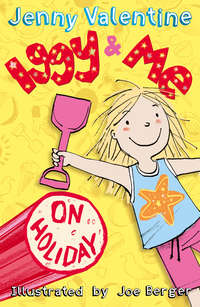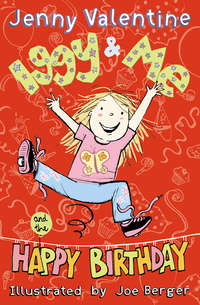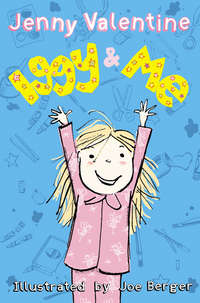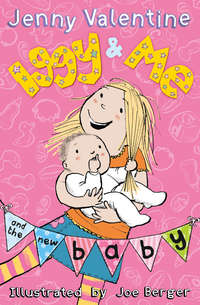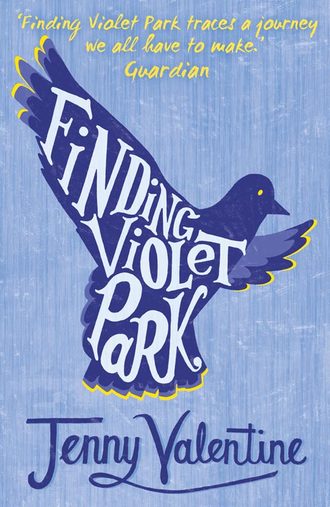
Полная версия
Finding Violet Park
Anyone walking into the mews just then would have seen a lady with a demented walk and a boy hopping from one foot to the other, and would most probably have turned round and walked back out again.
As soon as I went in I knew I hadn’t really thought this thing through. I was way under prepared. I could hear my blood shushing through my ears like a pulse. For a start, I’d been standing outside for longer than I realised, arousing suspicion. Tony Soprano was halfway down his stairs already. Whether he remembered me from the other night or not, he had every right to think I was a nutter. I was sort of hovering on the spot, smiling like an idiot. And anyway, paying a call on the remains of a dead stranger isn’t the sanest thing I’ve ever tried to do.
He asked me if I wanted a cab and I said no, and then when he turned his back to me I changed my mind and said yes, and he laughed and asked if I had any money, which I didn’t. Then he told me to leave, which wasn’t the cleverest time to ask him about the dead lady. He walked right up to me then, younger than he looked, sallow with grey bags under his eyes and cigar breath.
This, as far as I can remember it, is the conversation I had with Tony Soprano.
Me: Why have you got a dead lady’s ashes?
TS: What’s it to you?
Me: Is she yours?
TS: What? (Looks at colleagues) What a question!
Me: I mean did you know her? Was she a relative or something?
TS: No.
Me: What are you going to do with her?
TS: Who? None of your business mate.
Me: Well—
TS: When they collect they can do whatever they want.
Me: Who?
TS: The family, whoever left her, who d’you think?
Me: Are they going to?
TS: No idea. You’re not touching it. Get that idea out of your head right now.
Me: What’s her name?
TS: (giving me the hard stare for the count of five and sighing) If I tell you, will you sod off?
Me: Yes
TS: (picking up the urn and showing me the metal plaque on the side that reads VIOLET PARK 1927 – 2002) Now sod off.
It was like a light going on in my brain.
I read once in a comic about readiness potential, the way your brain is always one step ahead of you, even though you think you’re the one in charge. It’s pretty complicated, but I think I understand it and it goes like this.
First you have to get the difference between action and reaction.
Action is throwing a ball and reaction is dodging out of the way when you suddenly realise that the ball’s going to hit you.
Your brain is firing signals all the time, telling you to scratch your nose or smile or put one foot in front of the other when you’re walking. But some things you do, like blink or drop a hot piece of toast, you couldn’t possibly know you were going to do beforehand because you didn’t see them coming. That’s where your brain proves it knows everything before you do, because it has to send the signal and the signal takes time.
This is called the readiness potential, the way your brain tells your body what to do before even you know you need to do it.
And what reminded me of the readiness potential thing was that when I read Violet’s name, I realised I knew it after all, before he showed it to me, even though there was no way I could. I heard it in my head just before I saw it written down, like when you watch a film and the dubbing’s out, so you hear what people say a bit before their mouths move. Right then I was pretty wired about it. I was thinking about that conversation-with-a-dead-pensioner feeling I’d had on the hill and I was sure that the only way I could have known her name was that she’d already told me.
It flew around in my brain like a pigeon trapped in a building, flitting through the spaces, clattering against the sides. V-I-O-L-E-T. A good strong name; a name that’s a colour and there aren’t many of those around, and also a flower, soft and pretty and old fashioned, the perfect name for a dead old lady.
It was all I could do to stop myself from grabbing the urn and running off. I felt like her only hope at that moment. She’d been dead long enough to know there was no one coming for her. It still makes me sick to think of her stuck there since I was eleven, the same time as my dad went wherever.
Tony Soprano put Violet back on the shelf. I’d promised to leave and he was going to hold me to it. To stay calm on the way out I made a list in my head of all the good reasons to make friends with a dead lady in an urn.
1 A dead old lady would never be judgemental or lecture me like every other female on the planet.
2 If I decided to find out about her she might turn out to be the coolest most talented bravest person I’d ever heard of, and I might sort of get to know her without the hassle of her actually existing.
3 I would get to rescue her and I never did that for anyone before, and it sort of makes you need them too in your own way.
4 A dead old lady would be easy to like because she couldn’t leave any more than she had already.
I do know, I am aware, that a boy my age should have thought more about bringing home a living girl than a dead old lady. And I did care about that other stuff, about girls and mates and sex and stuff, I’m not a total freak. It’s just that Violet was becoming my newest friend and she was working her way to the front of my brain all the time, like new friends do.
If you think about it, a person being dead isn’t any barrier to finding out what they are like. Half the people we learn about in school have been dead for ages. People write whole books about William Blake and Henry the Eighth and Marilyn Monroe, and they’ve never met them and they still sound like they know what they are talking about.
I met Violet after she died but it didn’t stop me getting to know her. And what I keep trying to prove is that I’m not as insane as I’m sounding.
FIVE
Of all the places I would like to be when I’m dead, Apollo Cars is the last. I can’t decide what my first is yet, mainly because I’m too young to, but my top three all time places so far for being quiet and on my own (which sounds like a good description of being dead if you think about it) are as follows.
1. Primrose Hill – over the top and down again to the quiet side. It doesn’t have a great view like if you’re at the top, but it is peaceful and for some reason hardly anyone goes there, even on days when the park is mobbed. Also, it’s where my dad’s old friend Bob had a tree planted to celebrate when Jed was born.
2. St Pancras Church – I don’t like cemeteries in a Goth way (although I don’t mind anyone that does) because actually, apart from Violet, I’m not that comfortable with dead people. But I do like St Pancras. Mary Shelley who wrote Frankenstein used to be buried there, next to her mum who died giving birth to her, but then I think they got moved to St Albans, which is another thing you wouldn’t expect to do when you’re dead.
The church is on a gentle hill and you can’t see the dead from the road or the beauty of the place really, until you’re right inside it. There’s a tree there called the Hardy tree with loads of old gravestones (no bodies) sort of leaned up against it, all random. It’s called the Hardy tree after Thomas Hardy the famous writer who invented that place Wessex and made up sad stories about beautiful milkmaids and other pessimistic country people. He’s not buried there and he wasn’t even famous when he had anything to do with the Hardy tree. He was actually an engineer I think, and he was in charge of clearing the way for the railway line out to the midlands and he had to shrink the cemetery to make room and squish all the dead bodies into a smaller place. He might even have been the one who moved Mary Shelley and her mum. There must have been a bit of a mix up or something, because the headstones of some of the people that got moved just got left up against the tree.
I wonder how big the tree was then because its pretty old now, and then I wonder how big Jed’s tree on Primrose Hill will be in like two hundred years, and I wonder if anyone will find out about it and call it the Swain tree, because maybe Jed will be famous for something one day.
3. The City on a Sunday. Dad used to take me. There’s no one there. You can walk around and pretend you’re in one of those science fiction stories like The Day of the Triffids or 48 Hours Later. All the modern buildings reek of money and bad taste, and you can still feel the frantic stuff that goes on all week long, almost like the ghost of it is there on a Sunday, like the place is just exhausted with the pace of it all. And there are these really, really old bits too, all mixed in. You can be standing at some super modern glass box with your back to the oldest pub in London, and round the corner there’s a really narrow little lane called Wardrobe Street where they really did used to make wardrobes in about 17something, and it’s like time travel, street to street, and that’s a brilliant thing.
I didn’t know what Violet’s places might be, where she liked to spend her time, where she’d want to end up, and that’s a sad thing for nobody to know about a person. Before I die I’m going to leave strict instructions about where I want to spend the rest of time. I hope I won’t be so completely alone in the world that no one would remember to collect me after my funeral. It’s like those stories in the local paper about people who die and nobody notices for weeks and then they start smelling, and suddenly their neighbours remember they haven’t seen them for ages. And whenever I think about anyone living or dying all by themselves I end up thinking about my dad and wondering if he died alone, and if he thought about us when he died or if he is alive and ever thinks about us now.
I’ve only ever been to two funerals. The first one was my grandad’s – my mum’s dad – and I don’t remember it because I was about two, but Mum says I spent the whole time crawling around and barking like a dog.
The second one was this girl in my class called Angelique and she died when we were in year six. I think it was the Easter holidays, and she went somewhere like Spain with her mum and dad and died in the shower of carbon monoxide poisoning. They flew her home and the whole class went to her funeral. We all wanted to because she was really popular and a really nice person and everyone was gutted that she wasn’t ever coming back.
She was in a coffin made of bamboo or wicker or something, like a beautiful Angelique-shaped basket covered in pink blossom, and either side of her they had these silver buckets filled with sand and flowers. You got a candle when you came in and you lit it and put it in a bucket, so there were maybe a hundred candles surrounding her. The light was sort of eerie and full of life.
When the priest talked about commending Angelique to heaven, the flowers in some of the buckets all seemed to catch fire at the same time and you could hear this gasp go round the church like it was a sign or something, and nobody wanted to put the fires out. When Angelique’s dad went to pick up the coffin on the way out he leaned against it for support, like he was hugging her, and that really got to me.
After the funeral, back at Angelique’s house we had this kind of circle time thing where we all said something we liked about Angelique or told a funny story about her. They make you do circle time at school a lot when something bad happens, or sometimes just because they want to, and it can be OK and it can be pretty crap, depending, but that circle time at Angelique’s was just about the most sweet and touching thing ever. Everybody had something they really wanted to say, and Angelique’s mum and dad were crying and laughing at the same time, and you could see they were going to get by on those stories for years to come.
I doubt Violet’s funeral was much to write home about, seeing as she was the guest of honour and got left in a taxi. I doubt there was a circle time for her.
If we ever find my dad and he’s dead, I’m going to organise the biggest funeral you’ve ever seen and I’ll personally see to it that the flowers catch fire. We’ll play the best music, and everyone he ever knew and liked will be there and cry their eyes out and say really nice things about him. And afterwards, back at our house, we’ll have the best wake and nobody will want to leave. They’ll look after Mum and make sure she’s OK, and phone her every week, instead of being too embarrassed to say anything or ever call her up because there isn’t a body and they’re a bit busy with work and they were his friends really, not hers.
When Dad first went missing there was a big, big fuss. Not just Mum running around pulling her hair out (eight and a half months pregnant) and the police showing up all the time, and Mercy yelling and slamming doors and shagging whoever’d have her. For a while everyone was interested and he was all over the press – all the papers and the telly for weeks. There was this same photo of him everywhere, one that none of us can stand to look at now, firstly because it reminds us of everything going wrong, and secondly because he looks so damn happy in it and that must have been an act.
I remember the exact moment Mum realised he had actually disappeared and wasn’t just somewhere sleeping things off for longer than usual, or stuck in the office on a deadline without calling, which often happened. I can see her now, rubbing her massive belly with this weird sort of half smile that she wore practically the whole time she was pregnant with Jed, answering the phone and then turning suddenly to dust. I was sitting at the kitchen table, waiting for Dad to come home so there would be another boy in the house, and I was watching her. She was really beautiful when she picked up the phone – in my memory she sort of glows and the lighting is soft and everything – and by the time she put it down, maybe two and a half minutes later, she was grey and old and looked like she was going to throw up.
(She did, all night and the next day and they had to take her into hospital because she wasn’t keeping anything down and she hadn’t slept and everyone was worried about the baby.)
The phone call was from a friend of Dad’s at The Times called Nigel Moon, who said the police had found our car in a field somewhere in Hampshire, and was his passport at home or was there a chance he had it with him, and he thought she should know. He got to her about five minutes before the police because while she was throwing up in the downstairs loo there was a knock on the door and it was them. (Dad’s passport was in a drawer upstairs, next to Mum’s.)
And after the big, big fuss there was nothing. In a few weeks people began to get bored or forget, and they drifted away and left us to our own private chaos. Mum had Jed and they both cried a lot in her room, Mercy stopped speaking for maybe three months, and I walked around lost and got into a lot of fights.
There’s a definite stigma attached to you when someone in your family goes missing like that. A big question mark, a skeleton in your cupboard, a dirty shadow. In the beginning when everyone was all keen and interested, actually they didn’t care at all, they were just looking for something nasty, for dad’s guilty secrets, for the cracks in our family that must have opened into massive caverns and swallowed him whole.
Was he having an affair? Was he mixed up in anything illegal? Was he murdered? Did we do it? Did he kill himself? Why? Was he having an affair? And round and round like a dog chasing its own tail until we put the telly in the cupboard and took the batteries out of the radio and stopped looking at newspapers or answering the door or going out.
Every so often now something comes out about dad in the paper, mostly on a weekend, in the magazine or buried in the review section or whatever. I think the name Pete Swain must be on a kind of reserve list of the missing because he resurfaces every now and again with Lord Lucan and Richie Manic and Shergar, part of a rota for writers with nothing to do. In a way, going missing like that does make a good story, whoever you are. Mum says journalists like nothing better than a question with no answers because they can never be wrong and that makes them look good. She says they’re all vultures circling an old corpse, and that because they mostly abandoned us when they lost the scent she refuses to talk to any of them, even if some of them were still at school when he went missing and have nothing to feel bad about.
Only one of Dad’s friends stayed friends with us after he went. Mercy says the only reason he did it was because he’d always fancied Mum and he wanted to get into her pants, but I reckon loads of good things get done for that reason and it doesn’t make them any less good. He’s the one who planted a tree on Primrose Hill because he thought that even though Jed was born at such a terrible time we shouldn’t forget to celebrate. Mum made him Jed’s godfather after that.
His name is Bob Cutforth and him and Dad started out together on some local paper or other. For a while he was one of the big correspondents for the BBC and he went all over the world and into danger zones and interviewed tyrants and dodged bullets. But then he turned out to be a really sick alcoholic and lost his job and his house and his wife, and now he lives in a bedsit in Kilburn and gets benefits and writes in his notebooks all day. Still, he’s never forgotten Jed’s birthday even once.
SIX
If I was working in one of those swanky Soho ad agencies and I was doing consumer profiling, like where you divide people into groups according to what trousers they wear and if they’re ever likely to buy fish fingers from the freezer compartment, this is how I’d profile my mum.
AGE: 35-45
SEX: female
HEIGHT: 1.7 metres
WEIGHT: 50-60 kilograms depending
ANNUAL INCOME: under £15,000
PROFESSION: classroom assistant. Sometimes she says she’d like to spend a whole week just talking to grown ups and not wiping anybody’s nose, but the job fits in with Jed’s school day and she likes it mostly.
STATUS: married (estranged probably)
ON THE STEREO: old stuff. Some of it I like. Some of it is diabolical.
LEISURE ACTIVITIES: walking on the heath, swimming at the Lido (summer only), reading, knitting, learning to sew, yoga, aggressive cleaning.
If I was working at an ad agency I don’t think I’d go crazy about someone like my mum. I might half-heartedly throw a few bath oils or cleaning products or hair dye her way, but she wouldn’t have much to spend so I wouldn’t waste too much effort.
This would be my big mistake.
My mum is buying stuff all the time.
If there’s a bogus new miracle product on the TV, me and Mercy place bets on how long before Mum buys it. Our bathroom cupboard is spilling over with twenty-four-hour moisturisers, anti-wrinkle creams, cellulite busters and hair thickeners.
Mum says she used to be a beautiful woman, but having three kids and an absent husband has ruined her looks. She says that it’s harder than you’d think to have looks and then lose them, and Mercy says she should try just being ugly all her life and that’s no picnic. Mum says Mercy has low self-esteem. If you ask me, low self-esteem is what most girls live on, instead of food.
The main thing about my mum is that she’s sad. Life isn’t turning out for her the way it was supposed to. She blames Dad for a lot of it, of course, his old friends and us, and also she blames herself.
I know this for a fact, not because she ever told me but because she told Bob Cutforth. A lot. Whenever he came over for dinner they would get wasted together and I would listen outside the kitchen door because when people are wasted they talk about stuff they can’t talk about when they are sober. Once I heard Mum say to Bob that she’d spent the last year they were together hoping Dad would disappear off the face of the earth because she couldn’t stand how things were between them. She said she’d wanted to be free from the job of loving him because he made it such hard work. In her fantasy of being on her own she blossomed (Mum’s word) and did all the things she’d always blamed Dad for stopping her doing. But in reality, when he disappeared she was less than she’d been before, not more.
Remembering that conversation is like being there listening to it for the first time. The line of my spine feels caught, like I need to stretch it, my stomach is a hole, I’m listening to my own breathing and the big wall clock in the hall, and I’m staring at the streaks and blisters in the paint on the kitchen door and thinking I might kick it down and punch my mum in the face for wishing my dad away.
They’re quiet for a bit and then Bob says to her, “You didn’t make him go, Nicky. What did you do? You loved him and you loved his kids. You’ve done nothing wrong.”
Mum started crying then, just softly, and I went upstairs to my room and thought about what it was like to be her, and if her and Bob would end up getting married.
Another time, when I was sitting right there with them at the table, she said to Bob, “I wasn’t as good a wife as you all thought I was you know,” and then she went on about how much she hated being stuck at home with the kids and how she resented Dad’s great job and how she made him pay all the time and was insanely jealous and always thought he was playing around and how she was basically never happy at what turned out to be the happiest time of her life. Bob said she shouldn’t talk about that stuff in front of me, and she said, “Lucas is nearly thirteen and his dad’s left us, so he’s the man of the house now.” Then she ruffled my hair and told me to go to bed, like I was eight, which hacked me off because I was a man when it suited her and a kid when it didn’t.
She’s better now than she was then.
But the thing about my mum that still bothers me is that people mostly feel sorry for her and she lets them. Mum reckons life dealt her a bad hand, which is a good way of saying that her absent husband, her three kids and the fact that she’s not twenty-one any more are not her fault. I want to ask her if women in places like Sudan or Palestine or Kosovo worry as much about face cream and stretch marks and living without a man around, but I haven’t yet, and who knows, maybe they do.
And sometimes Mum gets angry with the wrong people – meaning those who are still here as opposed to he who has left. Some days I know as soon as I look at her that I’m not going to get a civil word out of Mum at all. Even just the sound of our voices makes her roll her eyes and tut and act like we’re squatters in her actual brain, and not people with as much right to be and speak as she has. On a bad day like that you can tell she’s programmed herself just to say NO to everything, practically before she’s heard it, which means she loses out when we’re saying do you want anything from the shop, or offering to put the dinner on.
What I think on days like that is this.
Maybe life didn’t turn out the way Mum planned, but it’s not our fault. Unless the thing we did wrong was being born, and if you start from there you can never do anything right, no matter how hard you try.
SEVEN
One good side-effect of Violet turning me on to old people was I got to know my gran a lot better. Her name is Pansy – another perfect name for an old lady, another flower name. I’d never really had much time for her before, what with her being old and having false teeth she got too small for, and skin like a bit of screwed up grey tissue that you find in your coat pocket, and pretty extreme opinions on just about everything. She and my grandad live round the corner in sheltered housing. Pansy says there’s nothing more patronising or that fills her with more dread than a primary colour window surround. She says it’s a sign that whoever lives there is no longer taken seriously. It’s worth remembering that they gave up their big house to move here so that we could live in it. Pansy would rather we didn’t forget it.


